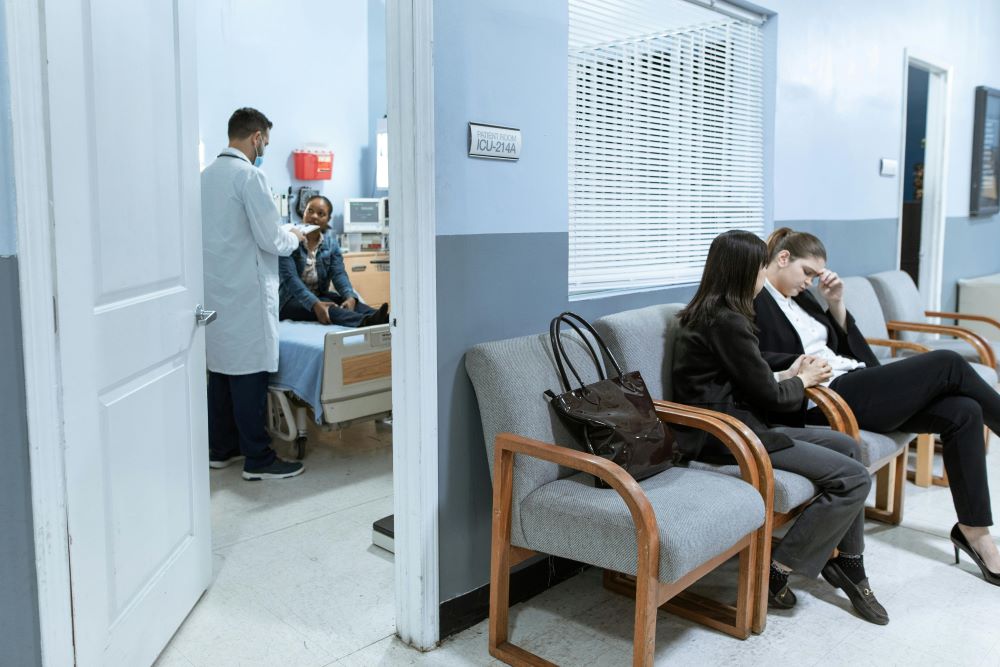By holding healthcare providers accountable, attorneys help to foster a culture of safety and responsibility within the medical community.
Medical errors, often resulting from negligence or oversight, can have devastating effects on patients and their families. In these unfortunate circumstances, understanding the legal landscape of medical malpractice, hospital liabilities, and the role of attorneys becomes crucial. This blog post delves into these aspects, offering a comprehensive guide for those seeking to navigate the complexities of medical malpractice claims.
Understanding Medical Malpractice: An Attorney’s Perspective
Based on donaldsonweston.com, medical malpractice occurs when a healthcare professional deviates from the standard of care, causing harm to a patient. Attorneys specializing in this field must possess a deep understanding of both medical and legal nuances. They scrutinize medical records, consult with experts, and meticulously build cases to demonstrate that negligence occurred.
For attorneys, mastering medical malpractice defense is a path that requires extensive education and experience. They must stay updated on the latest medical practices, legal precedents, and regulatory changes. This continuous learning process ensures they can effectively advocate for their clients, whether they are patients seeking justice or healthcare providers defending against claims.
Hospital Liabilities: Who is Accountable?
Hospitals can be held liable for medical errors under several circumstances. If an employee, such as a nurse or technician, makes an error, the hospital may be held responsible under the legal doctrine of “vicarious liability.” This principle asserts that employers are liable for the actions of their employees performed within the scope of their employment.
Additionally, hospitals are accountable for their own policies and procedures. Failure to maintain a safe environment, inadequate staff training, or insufficient patient monitoring can all lead to hospital liability. Attorneys must investigate these aspects thoroughly to establish a strong case, highlighting systemic issues that contributed to the malpractice.
Punishments for Doctors and Hospitals: Legal Consequences
The legal consequences for doctors and hospitals involved in malpractice cases can be severe. Doctors found guilty of malpractice may face disciplinary actions from medical boards, including suspension or revocation of their medical licenses. They may also be subject to fines and required to undergo additional training or monitoring.
Hospitals, on the other hand, might face substantial financial penalties and increased scrutiny from regulatory bodies. They may also suffer reputational damage, which can impact their patient intake and revenue. In severe cases, repeated malpractice incidents can lead to lawsuits that result in multi-million dollar settlements, further straining the hospital’s resources.
Medical Malpractice Challenges in Trials

Trials involving medical malpractice claims are notoriously challenging. The complexity of medical information and the necessity of expert testimony can make these cases difficult to navigate. Attorneys must effectively communicate intricate medical details to judges and juries, making the facts accessible and comprehensible.
Moreover, the burden of proof in medical malpractice cases lies with the plaintiff. This means that the attorney must demonstrate, with a preponderance of evidence, that the healthcare provider’s negligence directly caused harm. Defense attorneys often counter by questioning the credibility of witnesses, the validity of evidence, and presenting alternative explanations for the patient’s condition. This adversarial nature makes trials a formidable battleground for medical malpractice claims.
Settlements and the Path to Resolution
Settlements are common in medical malpractice cases as they provide a quicker resolution compared to trials. The amount can vary widely depending on the severity of the injury, the extent of negligence, and the impact on the patient’s life. Attorneys play a crucial role in negotiating settlements, ensuring that their clients receive fair compensation while avoiding the uncertainties of a trial.
Experienced attorneys know the value of a well-negotiated settlement. They must balance the need for adequate compensation with the desire to avoid a lengthy and costly trial. This involves assessing the strength of the case, understanding the client’s needs, and negotiating with the opposing party to reach a mutually agreeable resolution. Settlements often help patients and their families move forward without the prolonged stress and uncertainty of a court case.
Conclusion
Navigating the legal side of medical errors requires a thorough understanding of the intricacies of medical malpractice, hospital liabilities, and the judicial process. Attorneys specializing in this field must be adept at handling the complexities of medical evidence, establishing liability, and advocating for fair compensation. As healthcare continues to evolve, the role of these legal professionals remains vital in ensuring that justice is served and that the healthcare system remains accountable. Whether defending healthcare providers or representing injured patients, their work is crucial in maintaining the delicate balance between medical innovation and patient safety.
Moreover, the journey towards mastery in medical malpractice law is a testament to an attorney’s dedication to justice and patient rights. These legal professionals must not only possess a strong foundation in both medical and legal knowledge but also demonstrate exceptional negotiation and litigation skills. The stakes are high, and the outcomes of these cases can significantly impact the lives of those involved. By holding healthcare providers accountable, attorneys help to foster a culture of safety and responsibility within the medical community. Their efforts ensure that victims of medical errors receive the justice they deserve while also prompting systemic changes that enhance overall patient care. In this complex and demanding field, the role of the attorney is indispensable in driving progress and safeguarding public health.


Join the conversation!